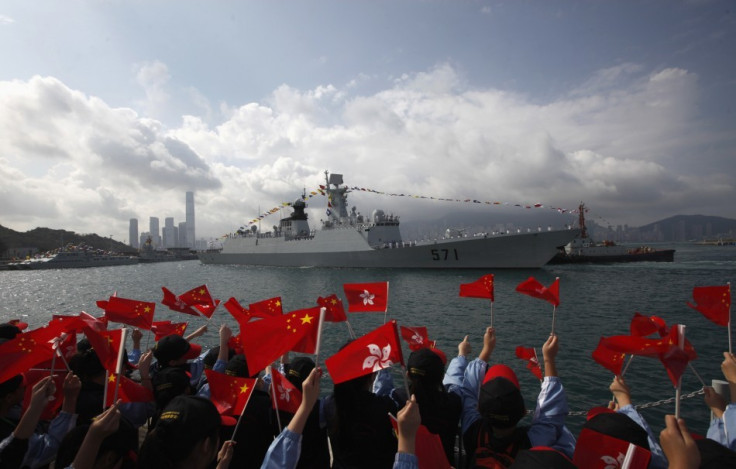The Chinese Model: Arm the World at a Discount

China's booming arms sales across the globe and the Dragon's increasing ability to sell hi-tech military hardware undercutting European and American manufacturers indicate the changing dynamics in the arms industry.
A Chinese state-owned arms manufacturer defeated pedigreed US and European companies last month in the race to secure a multi-billion dollar missile defence system deal with Turkey. And it did this by undercutting the price, according to analysts.
When the Chinese sit down to talk business - the business of making and selling goods - "discount" is in the air. They make "good enough" products at the best prices and the world is used to tapping Chinese factories to fill up and sustain its consumer supply chain.
"In arms manufacturing, China is trying to increase the quality and reduce price ... We're driven by competition," says Xu Guangyu, a retired major general in the People's Liberation Army and director of the China Arms Control and Disarmament Association, according to the New York Times.
The dragon state has long been known as the factory of the world, with a vast chunk of goods sitting on the Wal-Mart and UPS supply chains originating from the country. However, the pace at which China is closing arms deals across the world might make it the world's weapons super store instead.
For a long time the west's main worry was that the Chinese have no qualms in selling arms to states with abysmal human rights records, and that Chinese arms could potentially end up in the hands of non-state actors. But China has come a long way from the days of selling small arms, armoured tanks and aircraft to tiny African regimes as well as its large client states like Pakistan.
Deal With Turkey
The deal with Turkey stunned western military hardware manufacturers, especially the US and Russia which, between them, share nearly 60% of the global arms trade.
The multi-billion dollar deal was expected to be secured by American companies Lockheed Martin or Raytheon, or perhaps some Russian or European arms manufacturer. But Turkey finally offered the deal to China Precision Machinery Export-Import Corporation, a little known arms maker.
The Chinese company got the deal by significantly undercutting rivals on price, the NYT reported, citing industry analysts.
China is currently the fifth largest arms exporter in the world, ahead of the UK, and its export of conventional weapons soared 162% between 2008 and 2012.
The Turkey deal shows China's arms sales have moved up the value chain and in terms of focus geographies. Traditionally, most of Chinese arms sales were concentrated in south and Southeast Asia.
According to data from the Stockholm International Peace Research Institute, Pakistan accounted for 55% of Chinese arms exports while Myanmar received 8% of China's weapons exports.
Bangladesh got 7% of the arms and the bulk of the remaining Chinese arms shipments went to countries such as Algeria, Venezuela and Morocco.
More important is what Xu calls a distinct advantage that China has over the competitors. He says China does not "make demands over other governments' status and internal policies," according to the NYT.
"Our policy of non-interference applies here. Whoever is in the government, whoever has diplomatic status with us, we can talk about arms sales with them."
Could this policy make it a lot easier for the Chinese to expand the reach and volume of their arms trade, possibly just the same way as their lean, mean factories conquered the world with the discount sales?
It could, by all means. Xu says China's aggressive push in arms sales is just a "normal phenomenon".
© Copyright IBTimes 2025. All rights reserved.






















